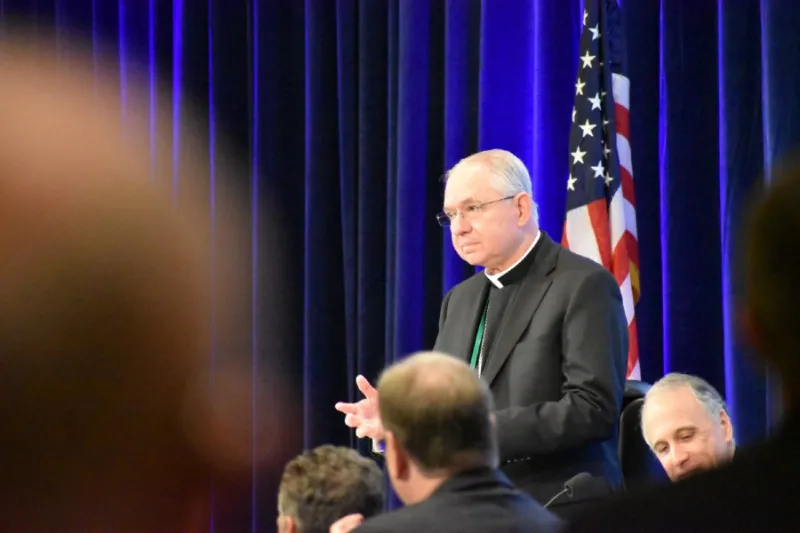
Washington, D.C. Newsroom, Nov 8, 2022 / 23:30 pm (CNA).
California citizens voted to amend California’s constitution to explicitly protect abortion, several news outlets, including NBC News, reported early Wednesday.
As of 1 a.m. EST Wednesday, the New York Times reported 31% of votes counted, with 68.8% voting yes to Proposition 1 and 31.2% voting no.
Americans in five states voted on the issue of abortion during the 2022 midterm elections. Three states — California, Michigan, and Vermont — proposed constitutional amendments to advance abortion. At the same time, citizens in Kentucky weighed a pro-life amendment and Montana voters considered a measure that promises to protect babies who are born alive after attempted abortions.
Following the election results, Catherine Hadro, director of media relations for California’s No on Proposition 1 campaign, stressed a disconnect between what Proposition 1 allows and what California voters support.
“We know that more than 80% of Californians reject late-term abortion. They oppose late-term abortion,” she told CNA. “And that’s exactly what Proposition 1 would allow.”
Recent Rasmussen surveys in August and October found that fewer than 15% of California voters believe abortion should be legal at any time during pregnancy up to the moment of birth.
“The notion that a baby can be aborted for any reason up until the moment of birth is soundly rejected by voters, especially if the baby is healthy and the mother is in no danger,” Hadro cautioned in a statement early Wednesday. “And yet, this is precisely what Proposition 1 will allow.”
Hadro told CNA that her group witnessed politicians and some in the media mischaracterizing Proposition 1.
“One of our concerns is, do Californians even know what they’re voting for?” she told CNA, adding that the more her campaign educated voters about Prop. 1, the more they opposed it.
“We have to be incredibly diligent and vigilant about getting the truth out there, about sharing the facts,” she said.
In a statement responding to the election results, Hadro concluded: “The battle now shifts to the courts and the legislature. Our coalition will fight all attempts to reinterpret rights or conform state law to what is now known as the nation’s most extreme abortion amendment.”
While polling indicated strong support for Proposition 1 ahead of the vote, pro-life campaigns expressed hope for victory and pointed to polls showing a drop in support leading up to Election Day.
The vote follows the Supreme Court’s June decision in Dobbs v. Jackson Women’s Health Organization, which overturned Roe v. Wade and freed states to legislate on abortion. It also comes after a pro-life amendment recently failed in Kansas.
What is Proposition 1?
Proposition 1’s text reads: “The state shall not deny or interfere with an individual’s reproductive freedom in their most intimate decisions, which includes their fundamental right to choose to have an abortion and their fundamental right to choose or refuse contraceptives.”
California currently allows abortion for any reason before viability, when a baby can survive outside the womb — generally considered to begin around 24 weeks of pregnancy. After viability, California allows abortion when a woman’s life or health is threatened.
The California Catholic Conference encouraged pro-life voters to say “no” to Prop. 1.
“Proposition 1 is a worst-case scenario for abortion in California,” the group warned. “It is an expensive and misleading ballot measure that allows unlimited late-term abortions — for any reason, at any time, even moments before birth, paid for by tax dollars.”
In response to the passage of Proposition 1, the California Catholic Conference warned that the measure “opened the door to unregulated, late-term abortions, all at taxpayer expense, redirecting state funding away from solutions for the greatest needs of California families.”
“Prop. 1 does not solve any of the underlying personal challenges that women cite as reasons for choosing abortion — intimate partner violence, housing insecurity, inadequate access to health care, insufficient paid leave, child care opportunities, or having no one in their lives able to accompany them through pregnancy and parenting,” the group said.
A campaign for the amendment led by pro-abortion groups, called Yes on Proposition 1, instead argued that Proposition 1 would “ensure that, in California, people continue to have the power to control their own bodies and personal decisions.”
Yes on Proposition 1 did not respond to a request for comment by time of publication.
If you value the news and views Catholic World Report provides, please consider donating to support our efforts. Your contribution will help us continue to make CWR available to all readers worldwide for free, without a subscription. Thank you for your generosity!
Click here for more information on donating to CWR. Click here to sign up for our newsletter.






Leave a Reply